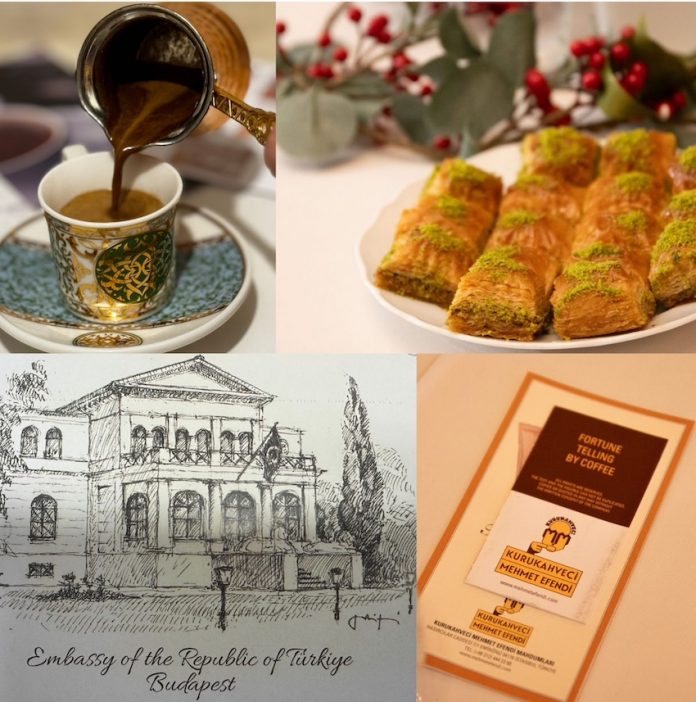“A single cup of coffee has forty years of memory”
Edited by Anna Popper

Celebrated annually on 5 December, World Turkish Coffee Day honours the centuries-old tradition of Turkish coffee and its deep cultural significance. This special day pays tribute to the unique preparation method, the rich and distinctive flavours and the integral role Turkish coffee plays in fostering social interactions and hospitality.
As part of the Turkish-Hungarian Year of Culture 2024, H.E. Ms. Gülşen Karanis Ekşioğlu, Ambassador of the Republic of Türkiye to Hungary, hosted a distinguished event to mark Turkish Coffee Day, which is still little known to many, offering a wonderful opportunity to showcase its existence.
Introduced to Central Europe during the Ottoman Empire, Turkish coffee quickly became a vital part of the culture as a drink and symbol of social life. Coffee houses, known as kahvehane, opened and became meeting places for intellectuals, poets, artists and people of various professions across Europe. Even today, they remain very important “institutions” in social life and communication around the world.
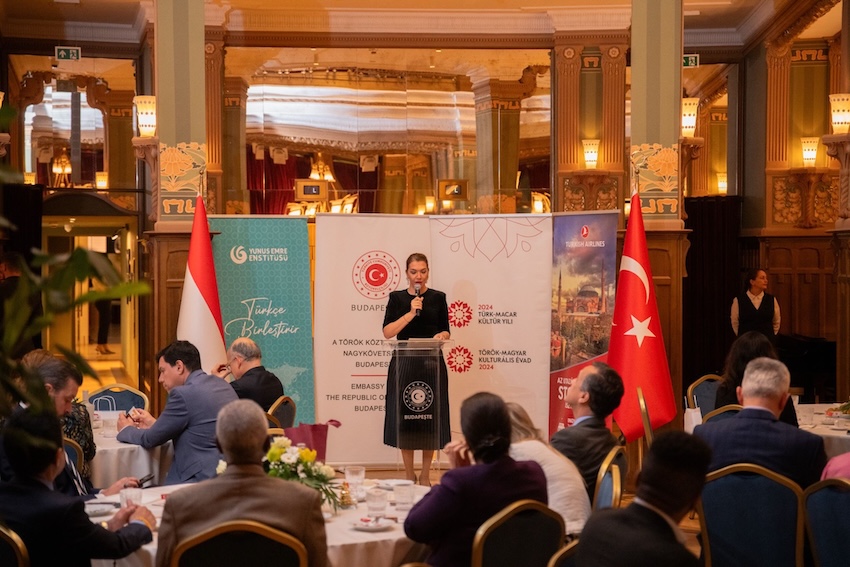
The celebration was held at the Matild Café, renowned for its exquisite Art Nouveau interior, located in the luxurious Matild Palace Hotel, one of the landmarks of Budapest.
The afternoon gathering brought together ambassadors with their spouses, dignitaries and esteemed Hungarian guests from various fields, all eager to explore the rich history and customs of Turkish coffee. As the beautifully set round tables filled with prominent guests, coffee was elegantly served in fine white porcelain cups, accompanied by delicate sweets such as baklava, lokum and other delicacies.



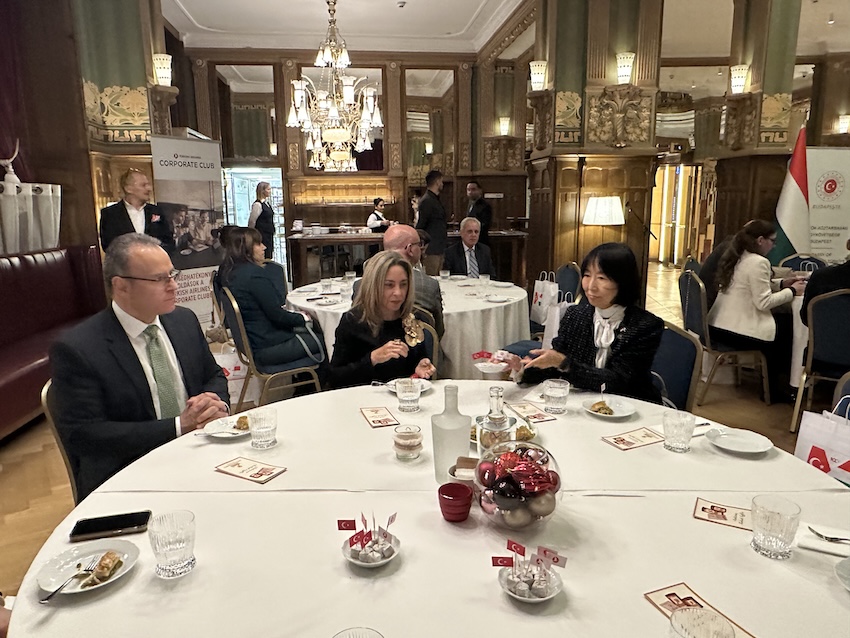

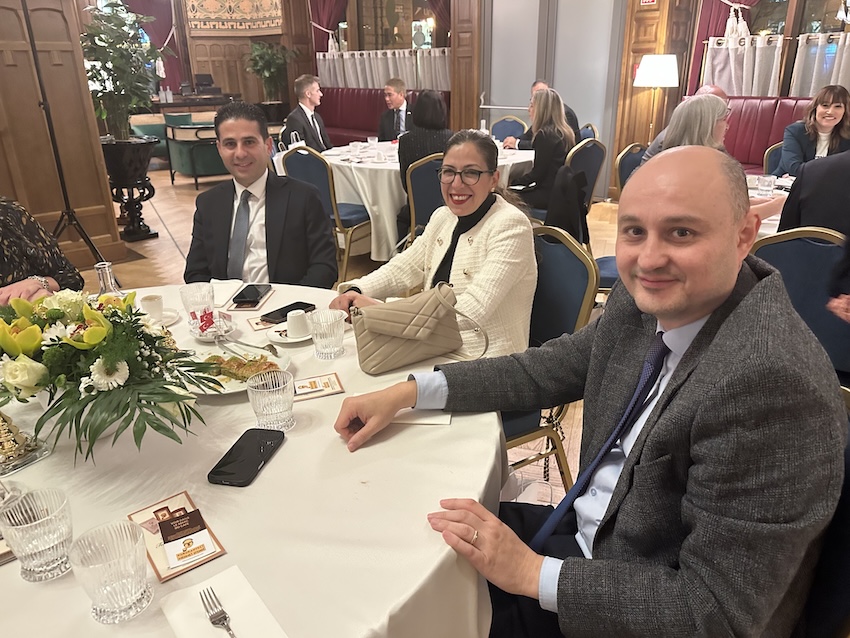
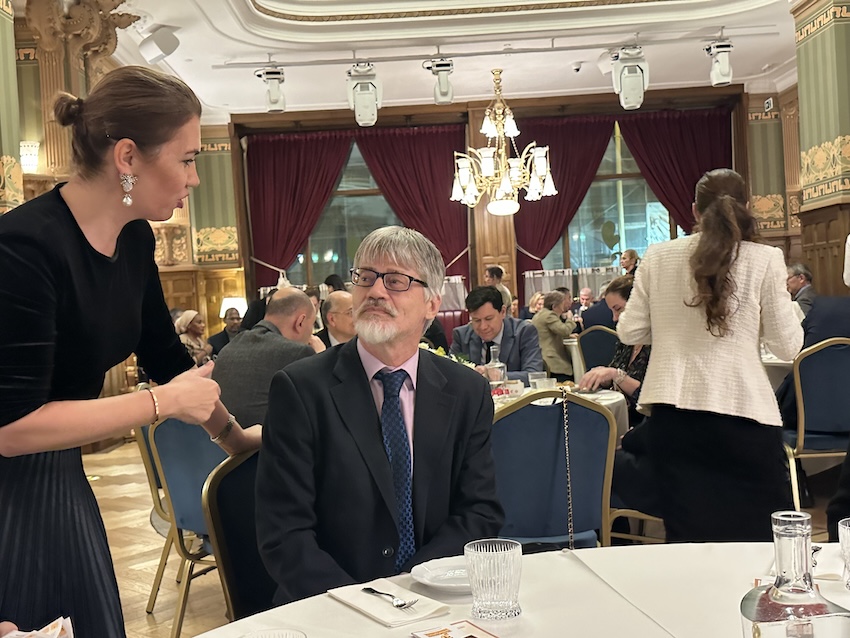
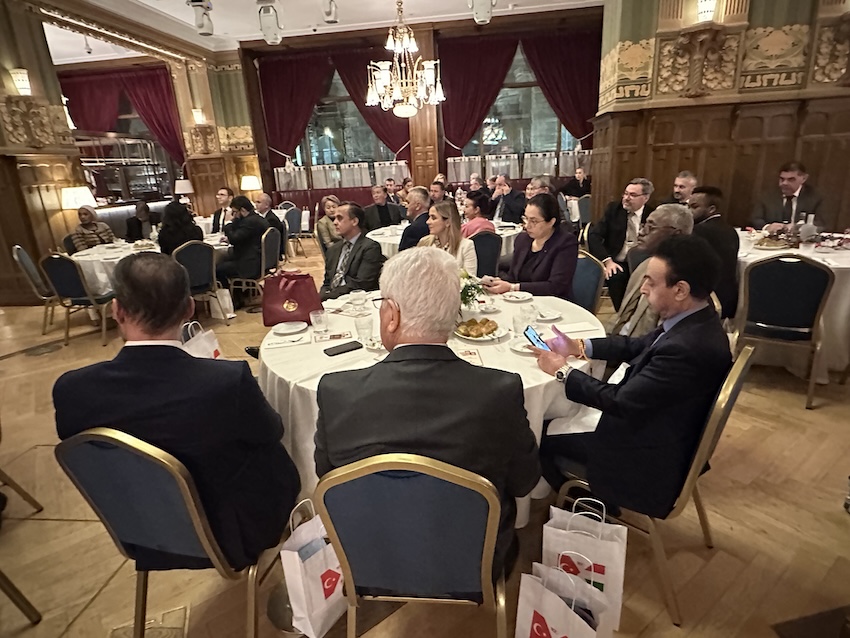

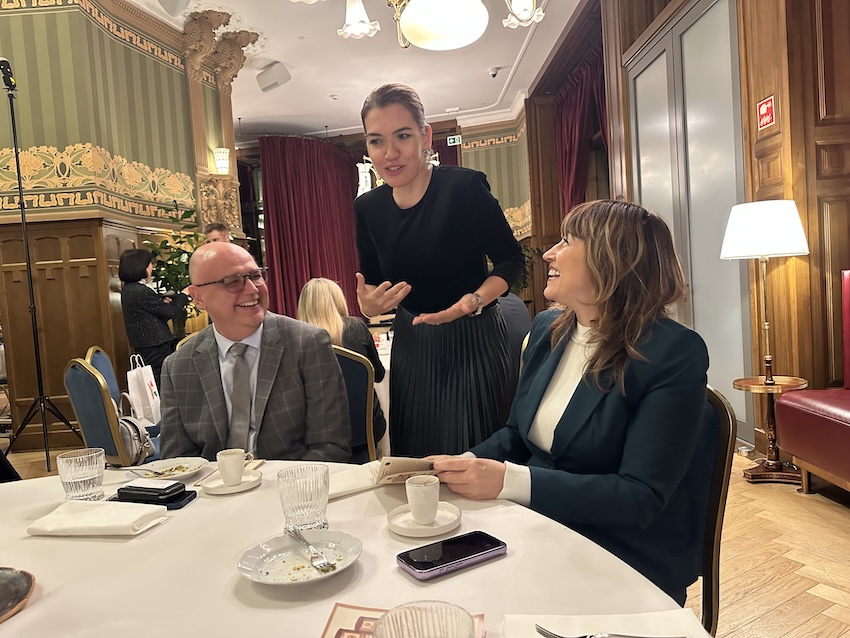
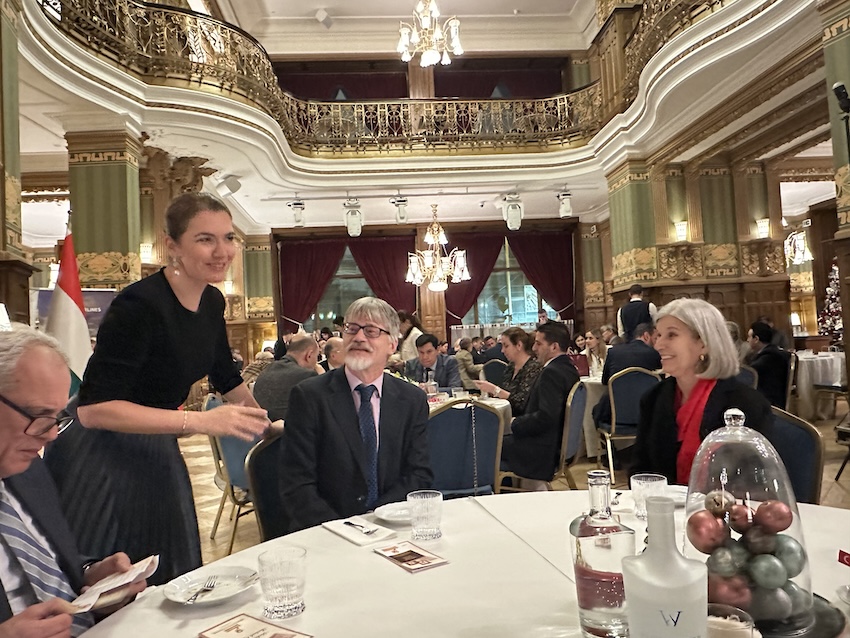
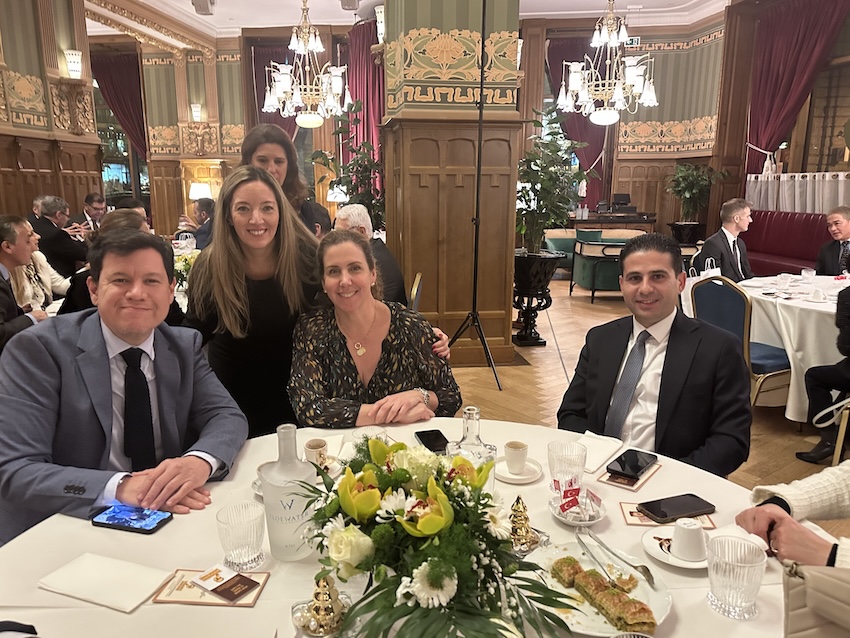
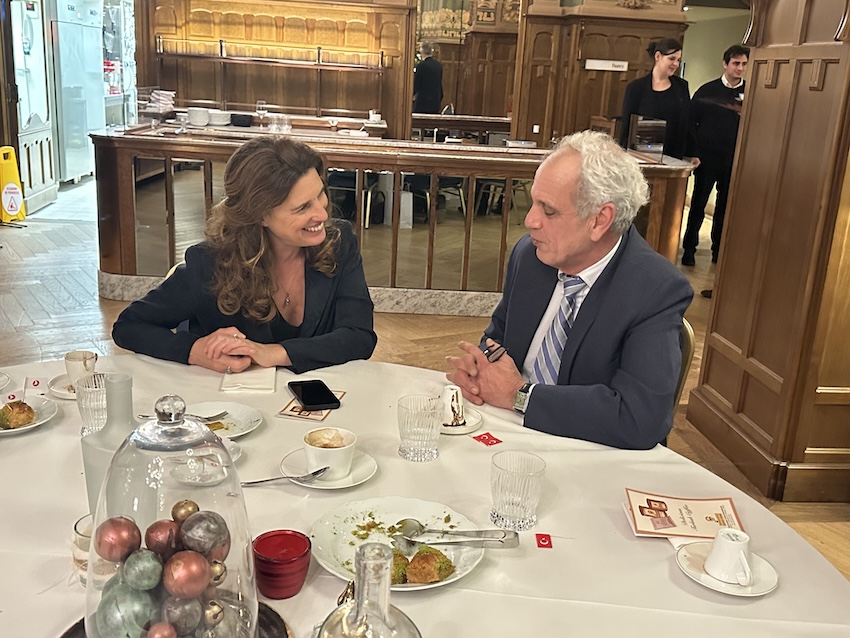
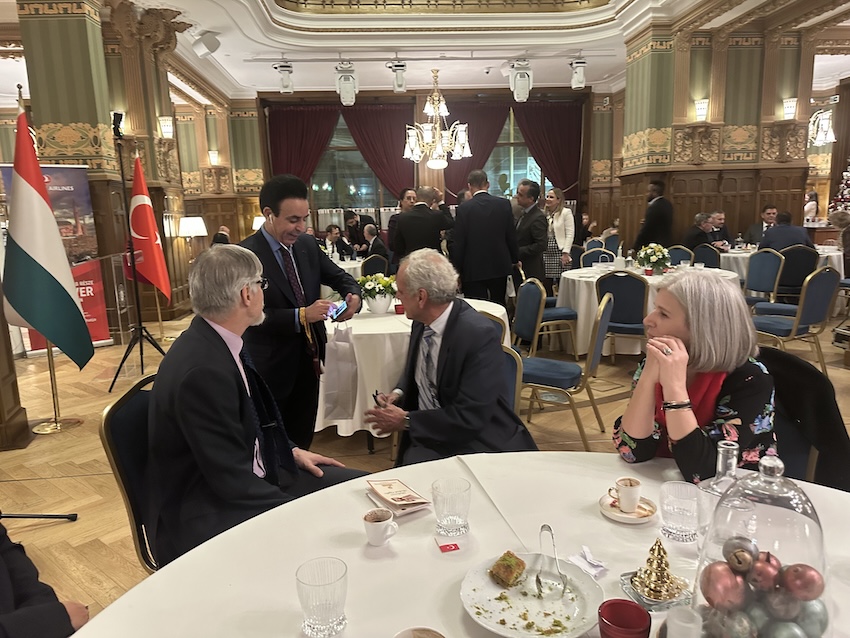
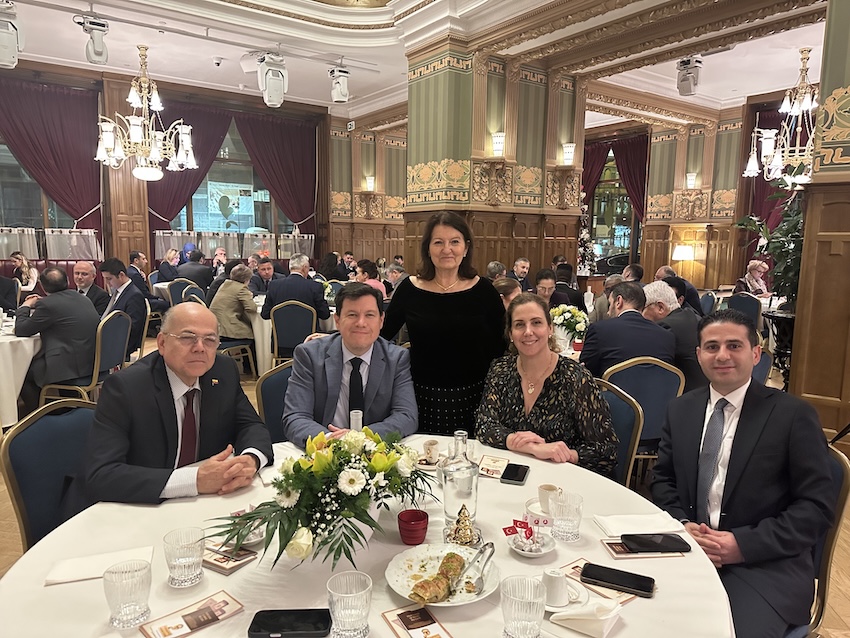
Ambassador Ekşioğlu then took the floor and addressed the audience:
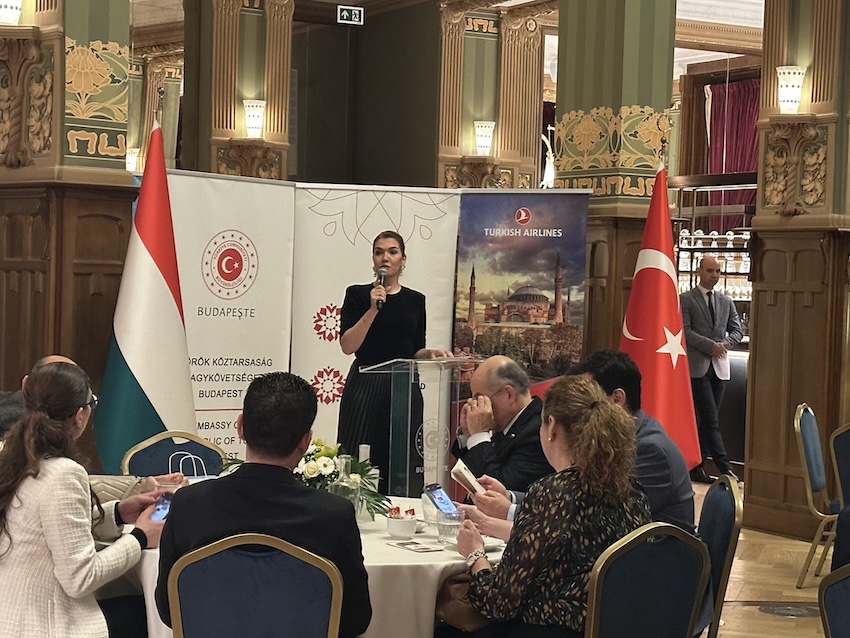
“Honourable Guests, Dear Friends,
It is my pleasure to welcome you this afternoon to celebrate World Turkish Coffee Day. With its long history dating back to the 16th century, Turkish coffee culture and tradition was included in UNESCO’s Intangible Cultural Heritage list on 5 December 2013.
Coffee was in fact introduced to Turkish culture during the Ottoman times. It first arrived at Sultan Suleyman’s palace in İstanbul from Yemen. And then the chefs in the palace kitchen developed a new technique to brew it, which is known as Turkish coffee today. After being a prominent beverage in the palace, Turkish coffee found its way to the streets of İstanbul and has since become an integral part of Turkish culture. It is one of the oldest coffee-making methods still in use, and Turkish coffee makers were known to influence the European coffee house tradition as well.
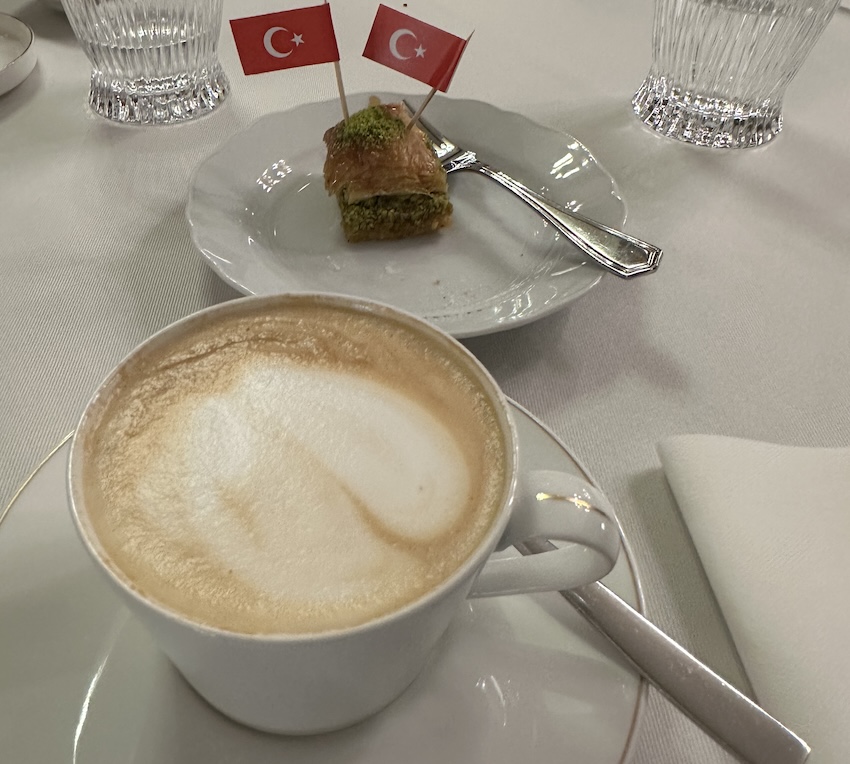
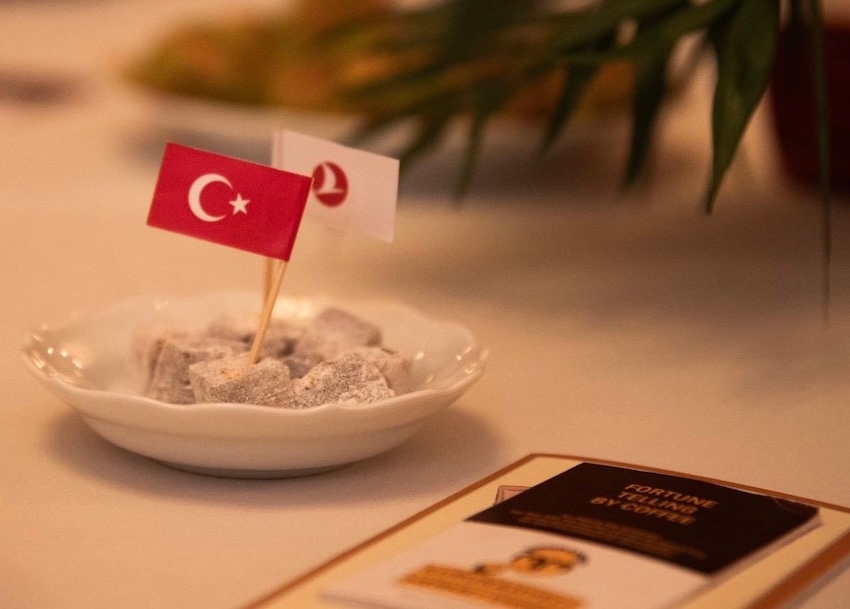
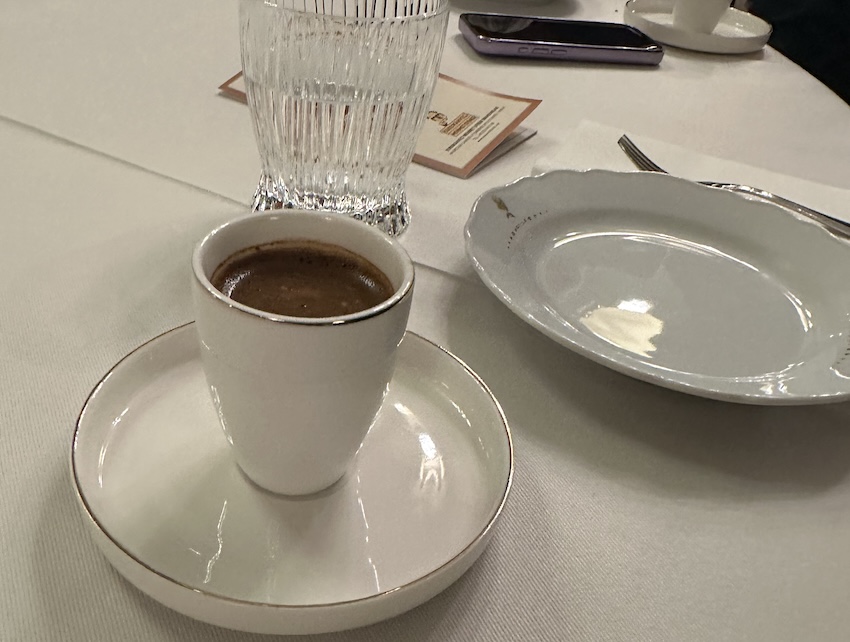
It is a common practice to use coffee as a pretext to initiate a conversation. But for us, it has a much deeper meaning for sure. Beyond its unique savour, brewing technique and presentation, Turkish coffee is a symbol of friendship, hospitality, delicacy and sincerity in our culture.
The rich taste of Turkish coffee accompanies us in our daily lives as well as on special occasions such as celebrations, family ceremonies and holidays. You must be familiar with the famous Turkish proverb: ‘A single cup of coffee has forty years of memory’. The delightful journey of sipping Turkish coffee indeed brings people closer and definitely seals the friendship.
Dear Friends,
As we approach to the end of the 2024 Turkish-Hungarian Year of Culture, I am delighted that Turkish cuisine in general and Turkish coffee in particular have been at the forefront of our program. So far, we have organized 105 events in 14 different cities of Hungary and 1 in 10 events had a culinary aspect.
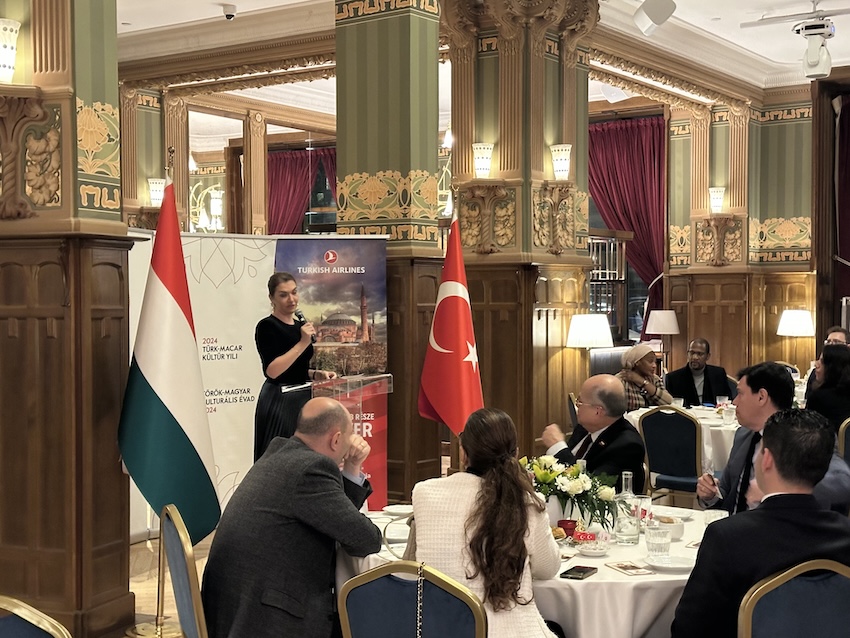
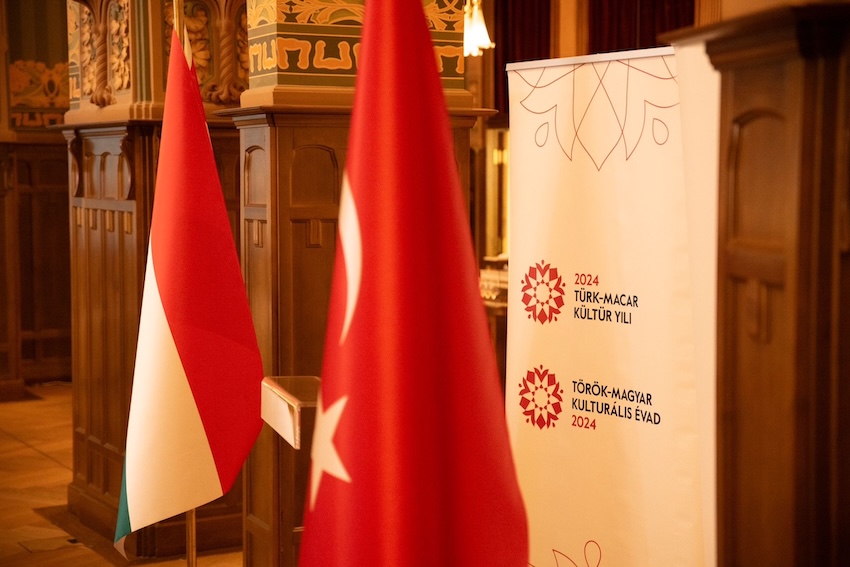
Thanks to the gastro-diplomacy initiatives, we had the opportunity to promote the richness of Turkish cuisine as well as to explore the overlapping values of Turkish and Hungarian cultures in various walks of life, including the culinary practices.
‘Turkish Coffee Evenings’ at the Yunus Emre Cultural Institute have now become a tradition, just as the culinary activities we organize each year within the scope of Turkish Cuisine Week (21-27 May), International Tea Day (21 May) and World Breakfast Day (first Sunday of June), in addition to the celebration of World Turkish Coffee Day.
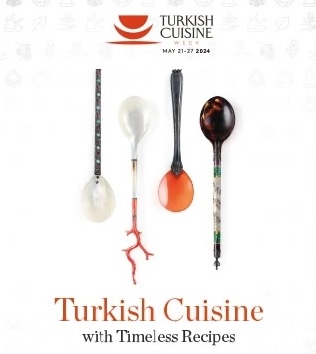

Today we sip a cup of Turkish coffee accompanied by some Turkish delicacies and spend a memorable afternoon all together. By the way, 17 November was World Baklava Day, so we will enjoy the sweet and flaky layers of baklava alongside Turkish coffee as well.


We thankfully had some sponsors today, Kurukahveci Mehmet Efendi and Turkish Airlines: two prominent brands that promote Turkish hospitality worldwide. Special thanks also to Yunus Emre Institute for bringing us all together for this delicious occasion.
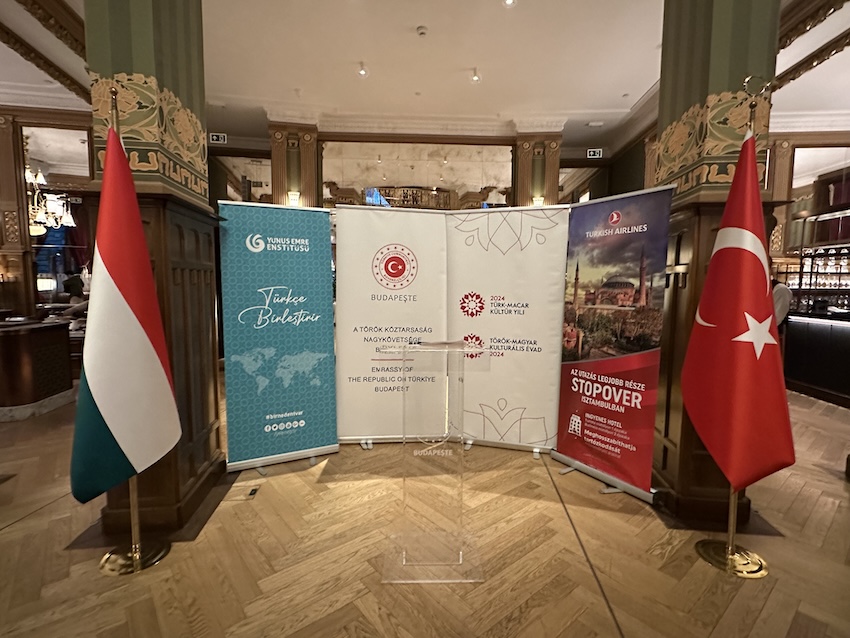
Let us share many more cups of Turkish coffee to cherish our friendship. Thank you for joining us and I wish you a lovely afternoon. Afiyet olsun! Jó étvágyat!”
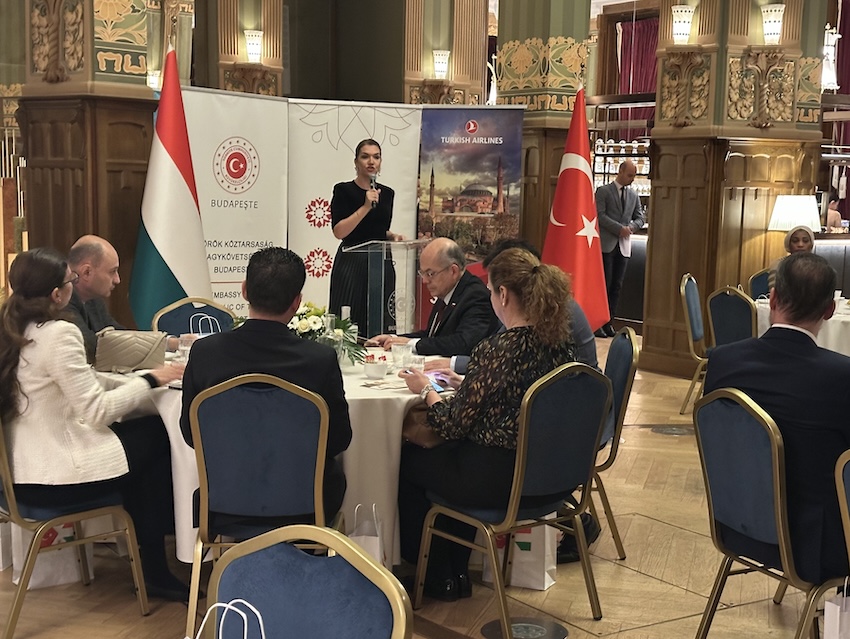
The Art of Turkish Coffee
Guests appreciated the insights shared during the event, as well as the coffee they savoured while having conversations with friends in a warm and welcoming atmosphere.
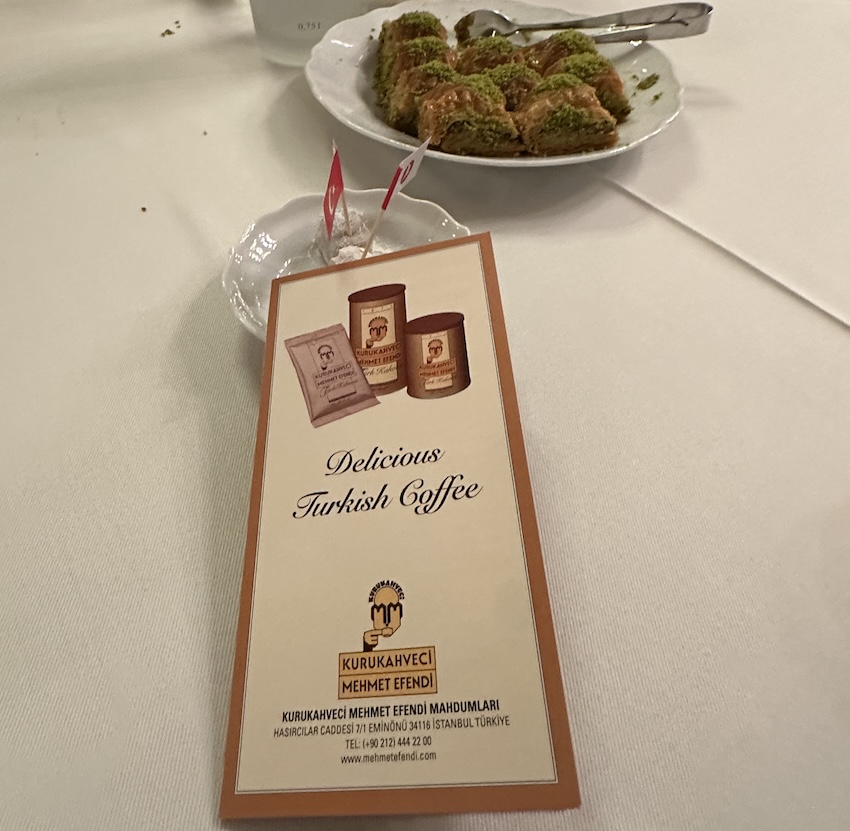
Turkish coffee is distinct for its preparation method. Finely ground coffee beans are combined with cold water and sugar (optional) in a special pot called a cezve. The mixture is slowly brought to a boil over low heat, creating a frothy layer on top. It is traditionally served in small cups with a glass of water. Turkish Delight, a traditional sweet in Türkiye, is often served alongside a cup of Turkish coffee. With flavours like pistachio, lemon, or cream, its chewy texture makes it a unique treat.
Turkish coffee remains an iconic part of Turkish culture, but Türkiye does not produce coffee domestically. Instead, it relies on imports, primarily from countries that are historically linked to the origins of coffee. Ethiopia: Considered the birthplace of coffee, Ethiopian beans are prized for their unique flavour. Yemen: Historically significant as Yemen was one of the first places to grow and export coffee during the Ottoman Empire. Brazil: A major modern supplier, providing a consistent and affordable source of Arabica beans. Other Latin American and numerous African countries also contribute to the supply chain. While the coffee beans are sourced globally to ensure consistency in quality, the blend may include beans from multiple countries to achieve the desired flavour and aroma. However, it is the preparation, traditions and rituals of Turkish coffee that make it uniquely Turkish.
Turkish Coffee Fortune Telling
During the event, a delightful surprise awaited the guests when Ambassador Ms. Gülşen Karanis Ekşioğlu, ever the gracious host, approached the tables and introduced a special tradition: fortune reading from coffee grounds. With the same professionalism she brings to her diplomatic mission, she demonstrated this unique practice to the intrigued guests.



While holding a porcelain cup in her hands, she explained the steps of the ancient ritual. After the coffee had been enjoyed, she gently swirled the cup by the handle in circular motion. This caused the remaining coffee grounds to settle on the sides and bottom of the cup, creating a unique pattern. Then, with a quick, practiced movement, the Ambassador flipped the cup upside down onto its saucer, allowing the coffee grounds to settle and form shapes at the bottom. She then waited for the grounds to cool and dry.



The most anticipated moment came when the Ambassador began interpreting the coffee grounds. After a brief pause, she carefully examined the intricate patterns left behind. The shapes and symbols – such as a heart, tree, snake, bird, fish, key, or triangle – each hold their own traditional meaning, she explained. Some might symbolize fortune or success, while others could offer guidance, a glimpse into the future, or signal an important decision.
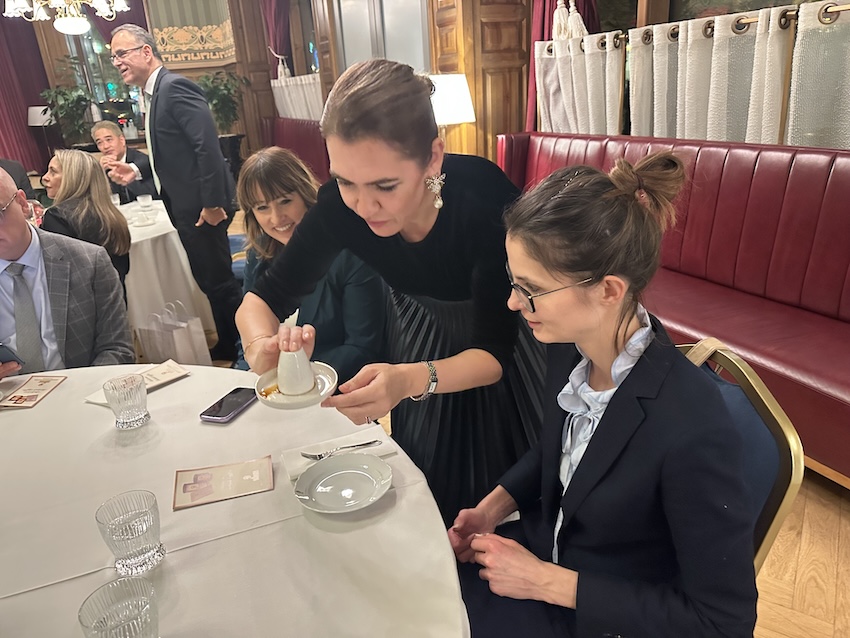

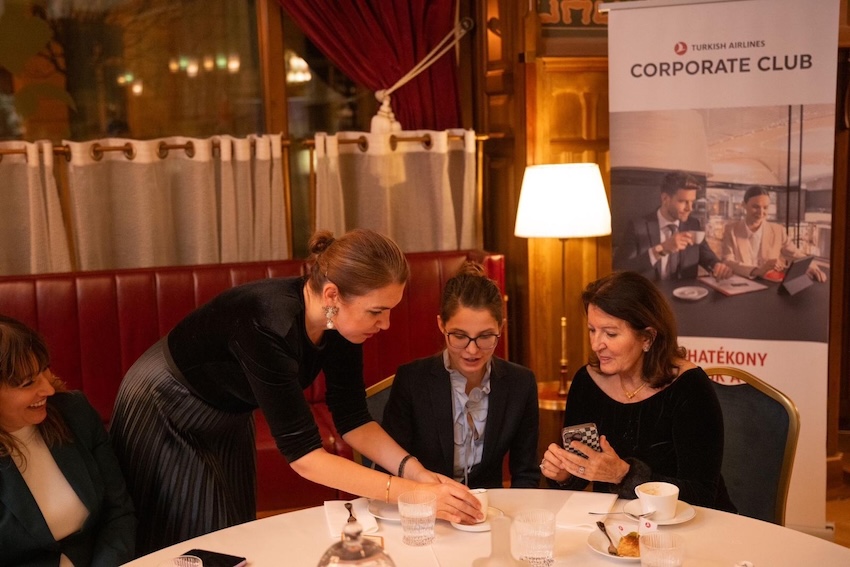
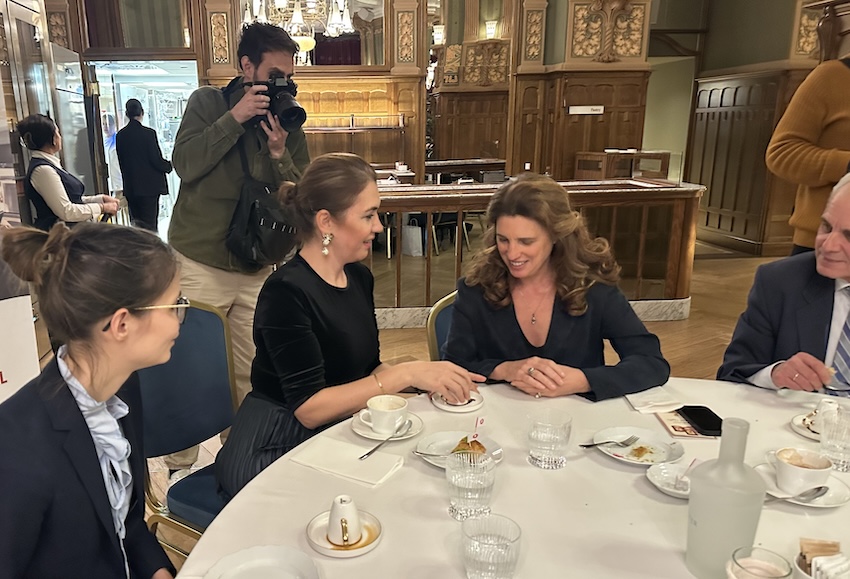

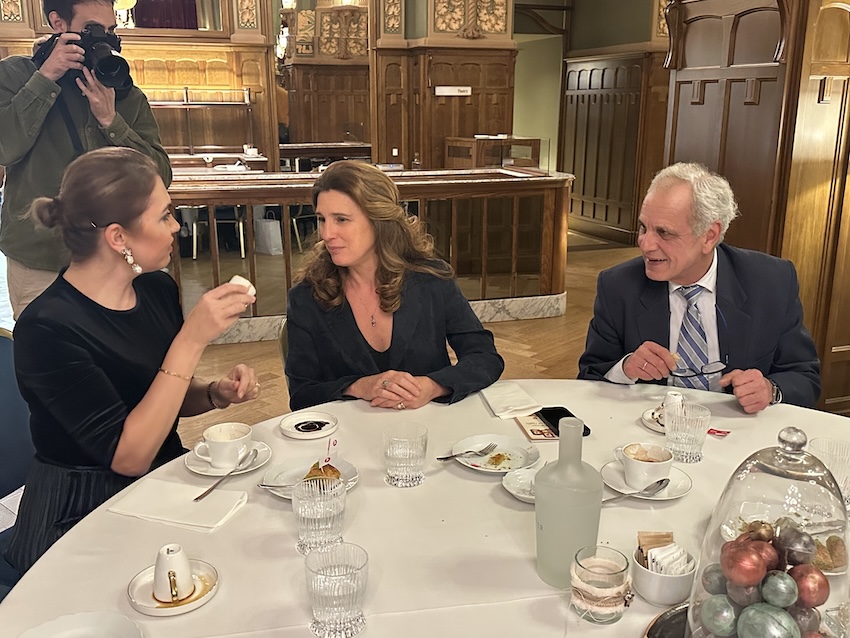
With remarkable expertise and kindness, the Ambassador read the futures of several ladies and gentlemen, saying that reading and interpreting fortune telling requires not only skill but also a great deal of creativity. The guests were mesmerized by the ritual, as a palpable sense of wonder filled the room as the Ambassador’s words brought the patterns to life. The atmosphere was alive with laughter, curiosity and shared joy as attendees listened intently and immersed themselves in this ancient tradition.
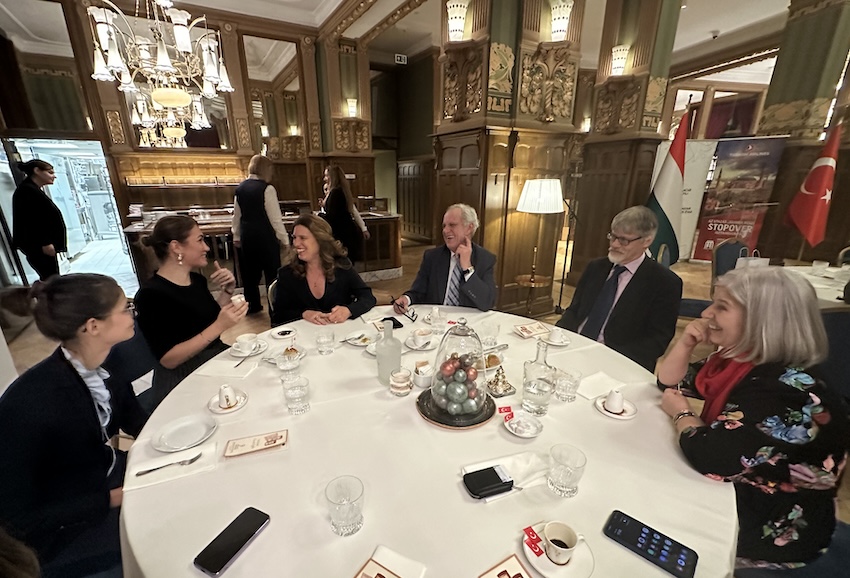
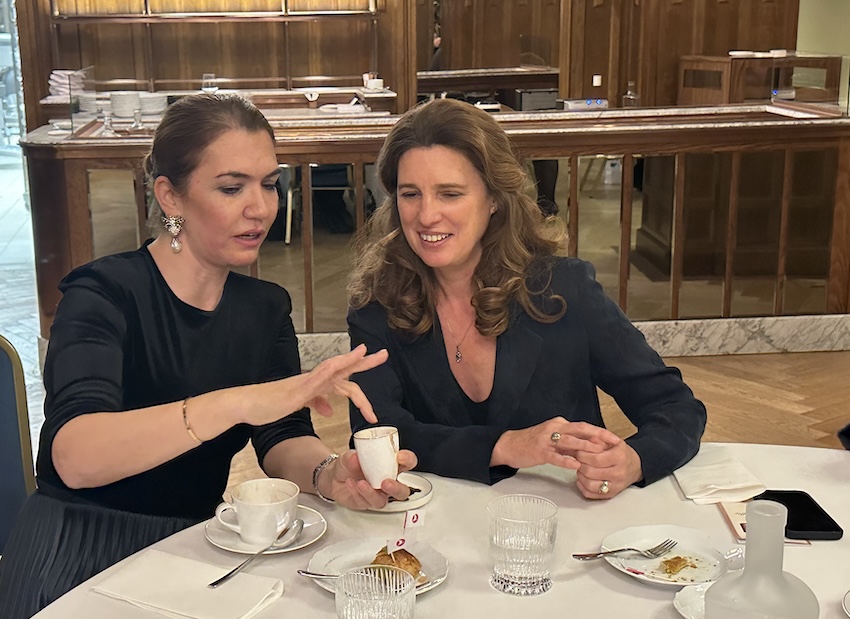
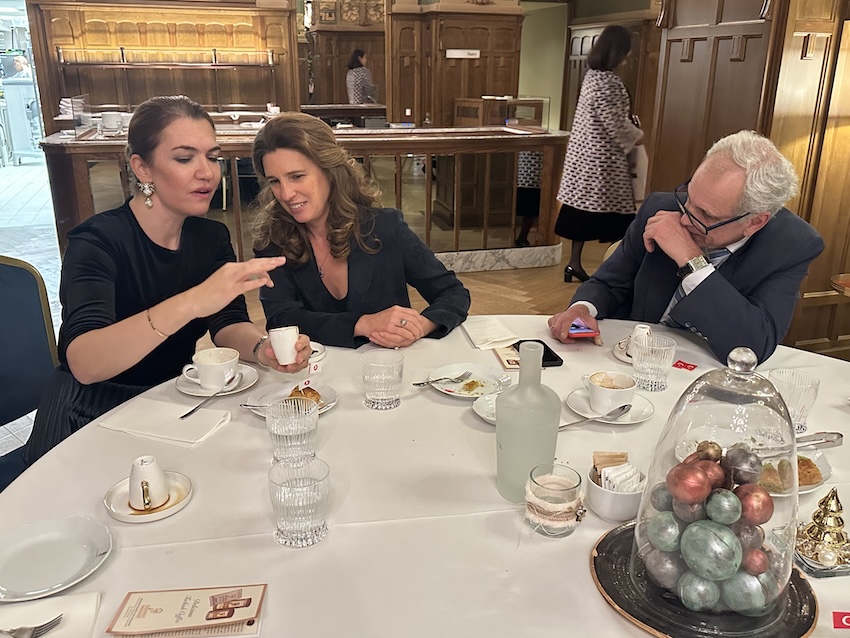

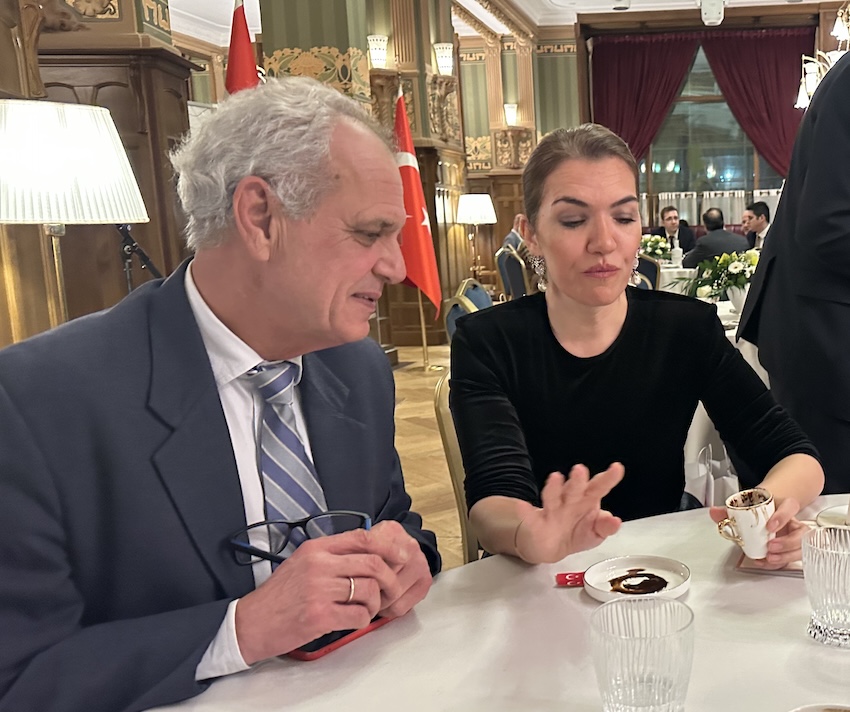
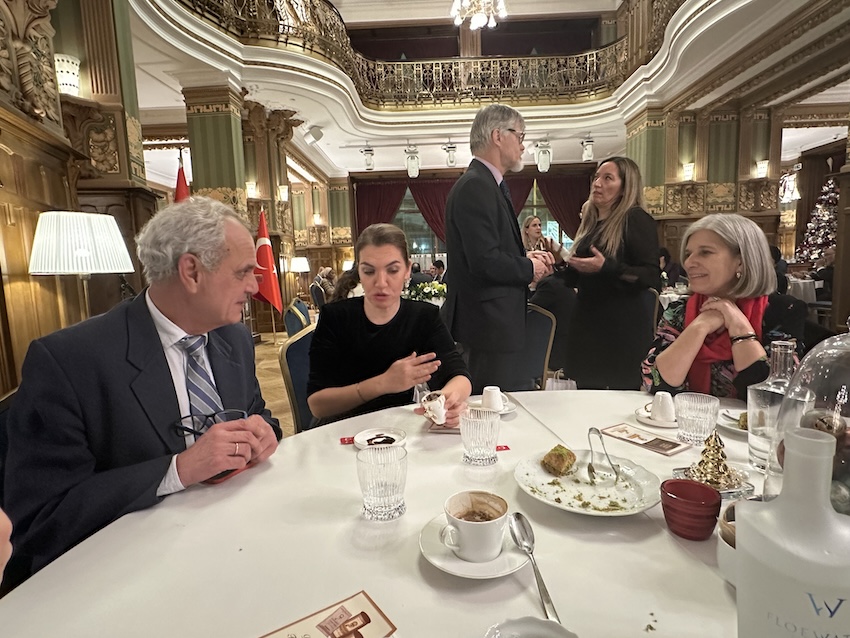
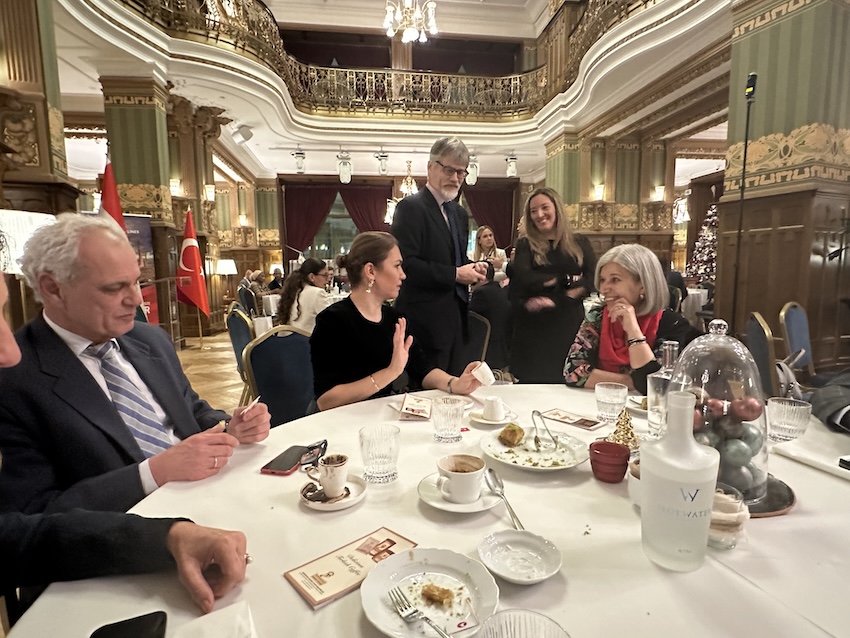
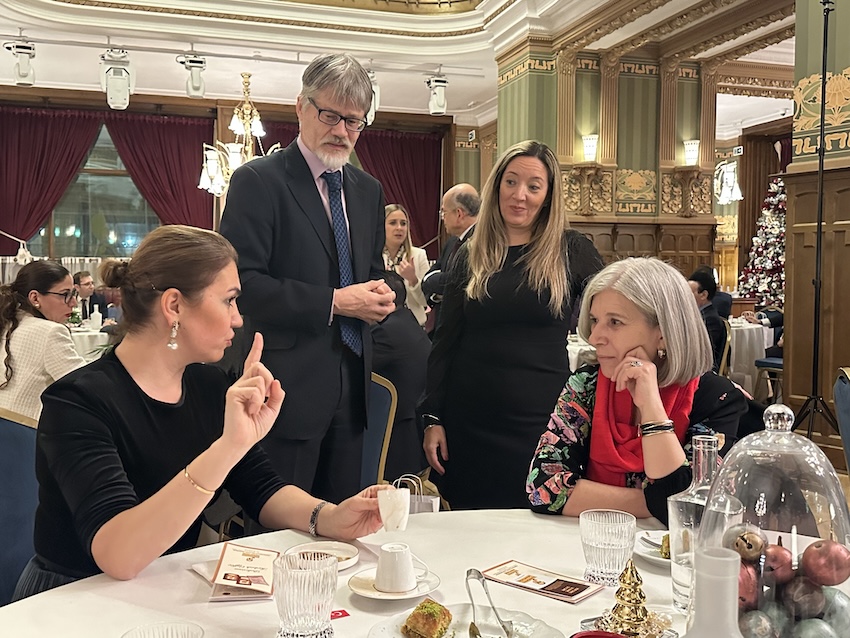
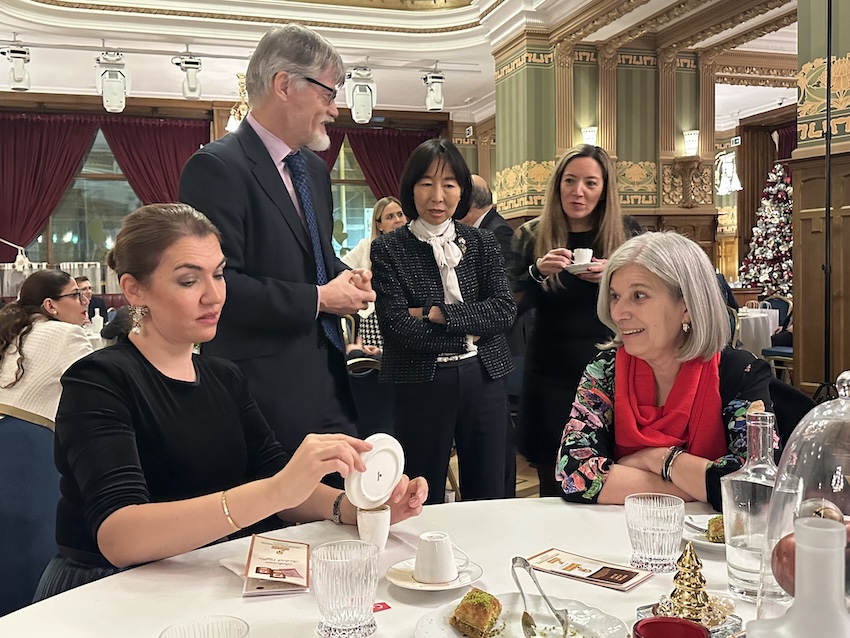
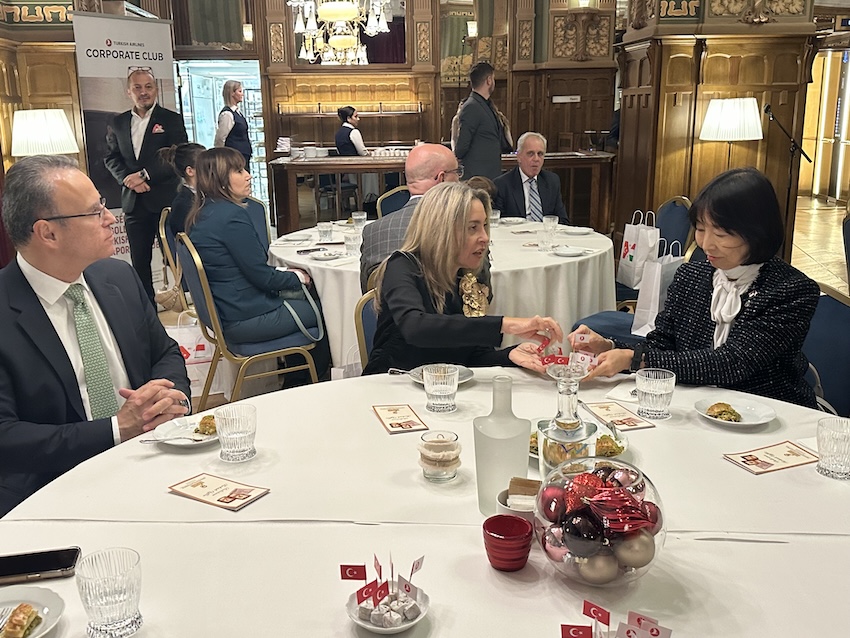
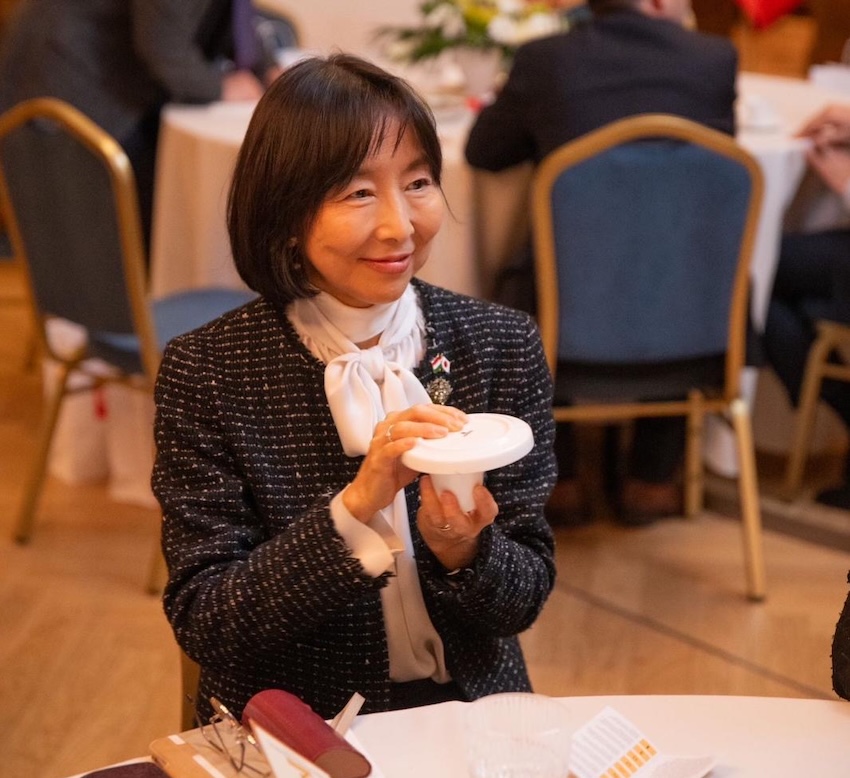
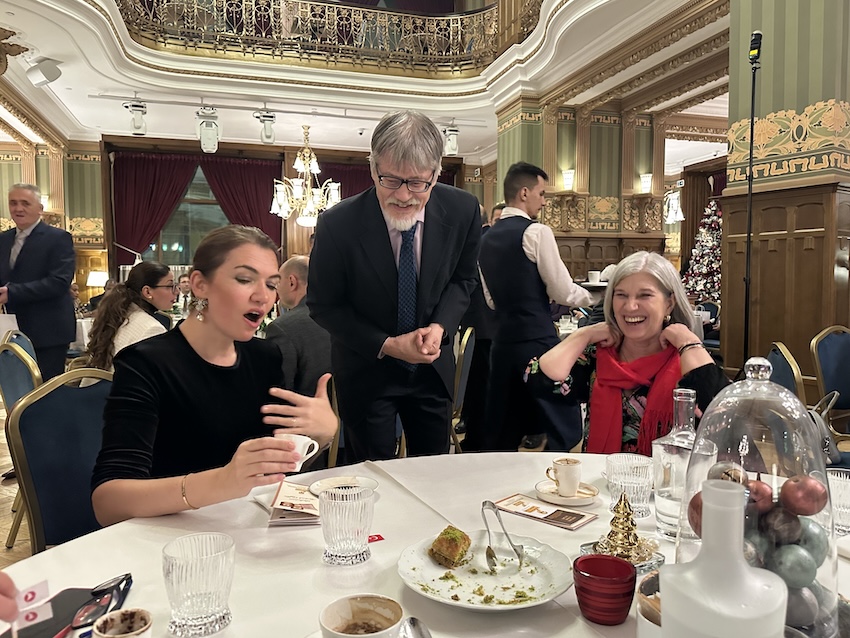
It was an outstanding experience – one that the participants deeply admired and will surely cherish for a long time, as they discovered a new, unexpected facet of the Ambassador’s renowned professionalism, akin to that of a true psychologist.
The event concluded on a high note, with guests enjoying the Christmas ambiance of the Matild Hotel, the beautiful Christmas tree and festive decorations, a masterpiece each year, perfectly reflect the spirit of the approaching holiday season. As they left, they were presented with thoughtful gifts from the host in the spirit of Turkish hospitality.
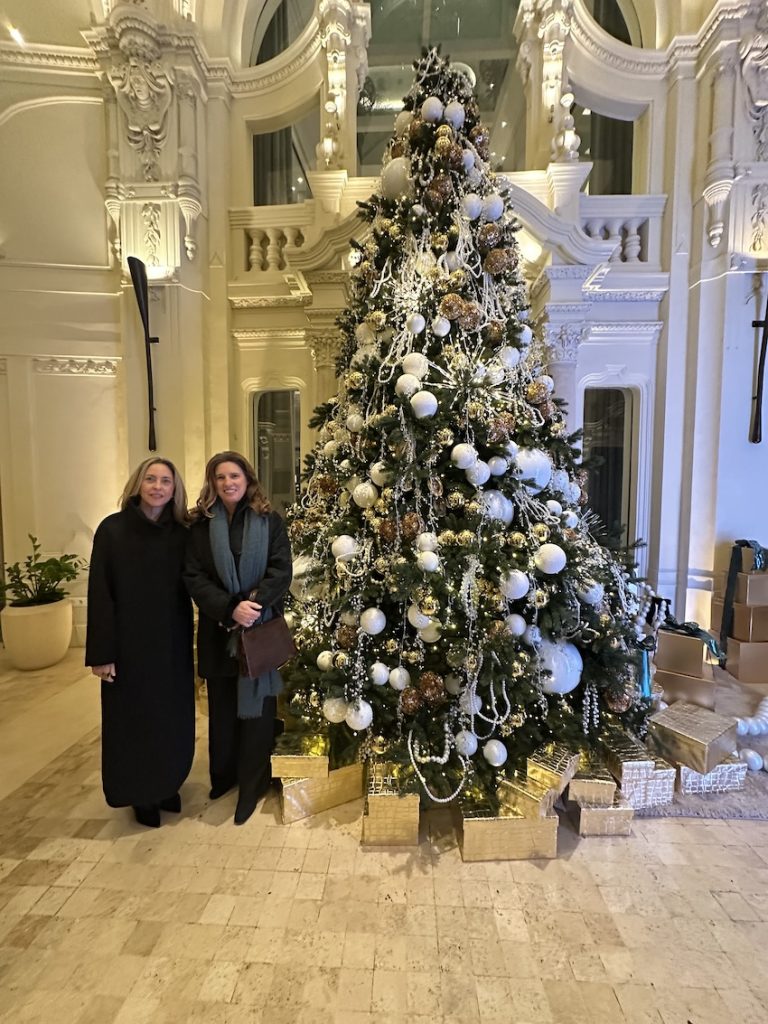
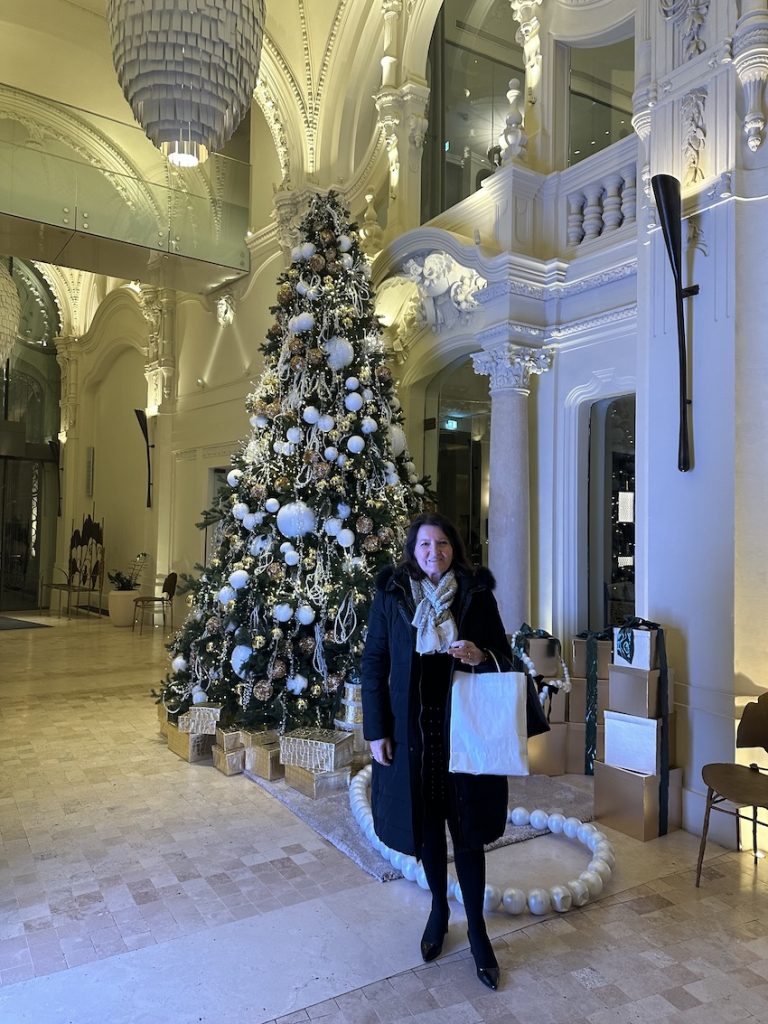
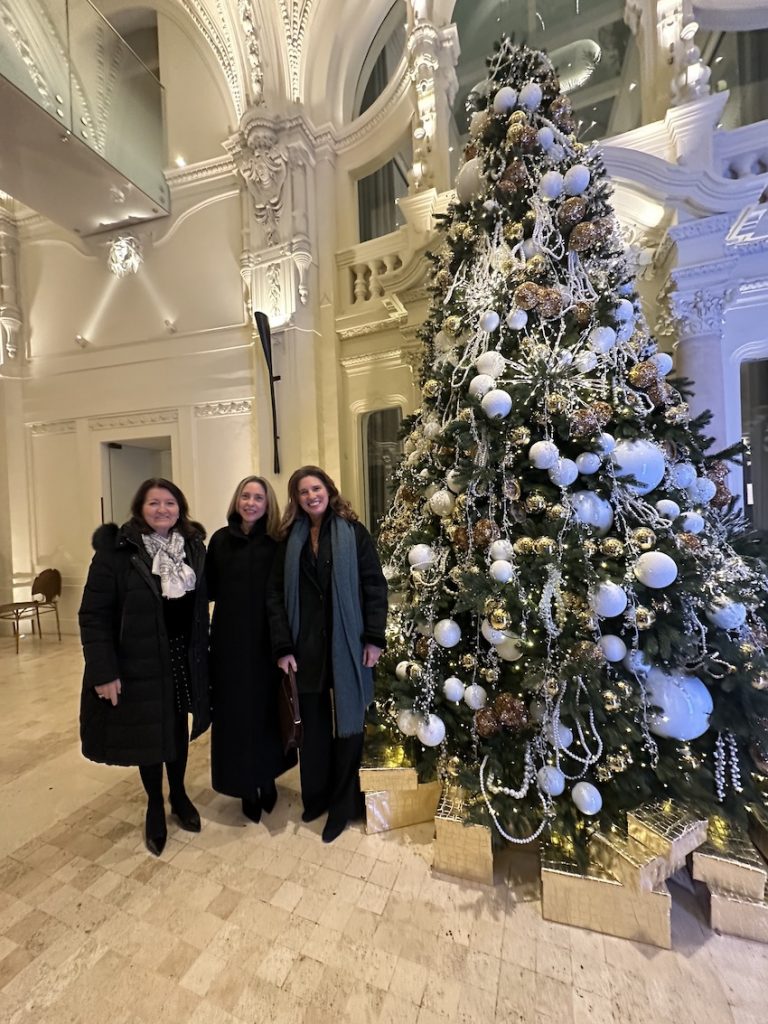
Thank you for the opportunity to be part of this wonderful celebration of the authentic tradition of Turkish Coffee.
Source: Embassy of Republic of Türkiye in Budapest
Photos by the Embassy of Republic of Türkiye in Budapest and DPA





